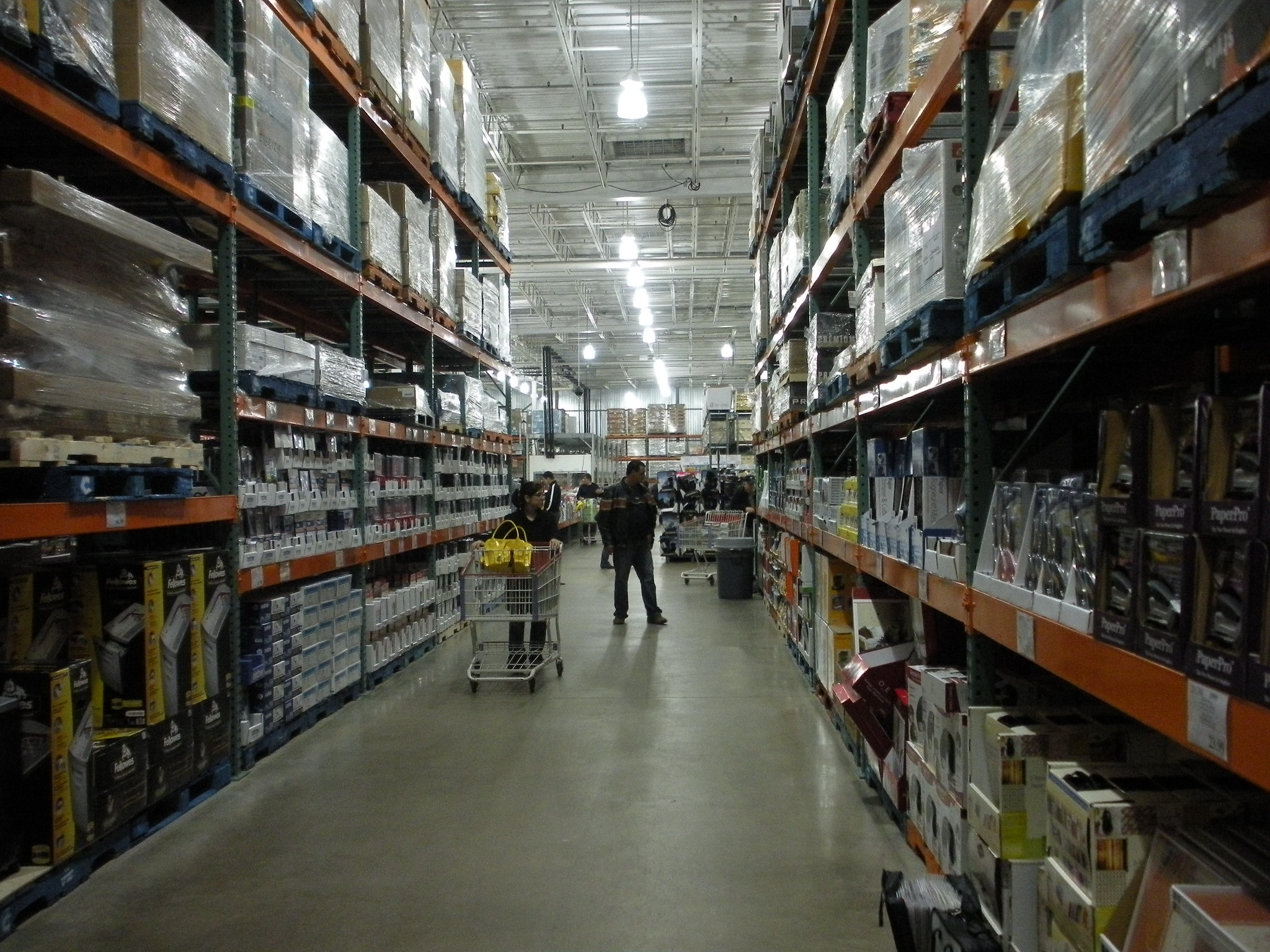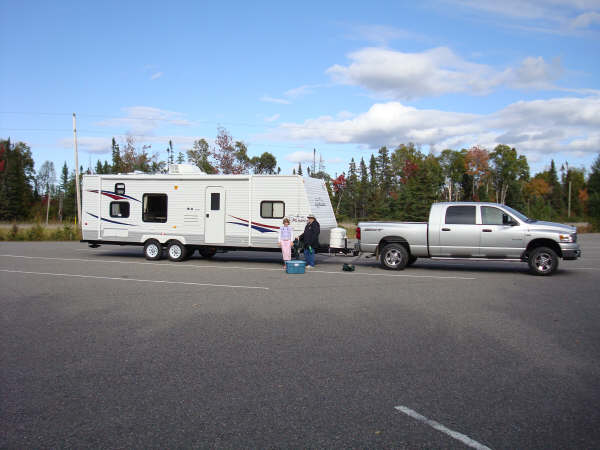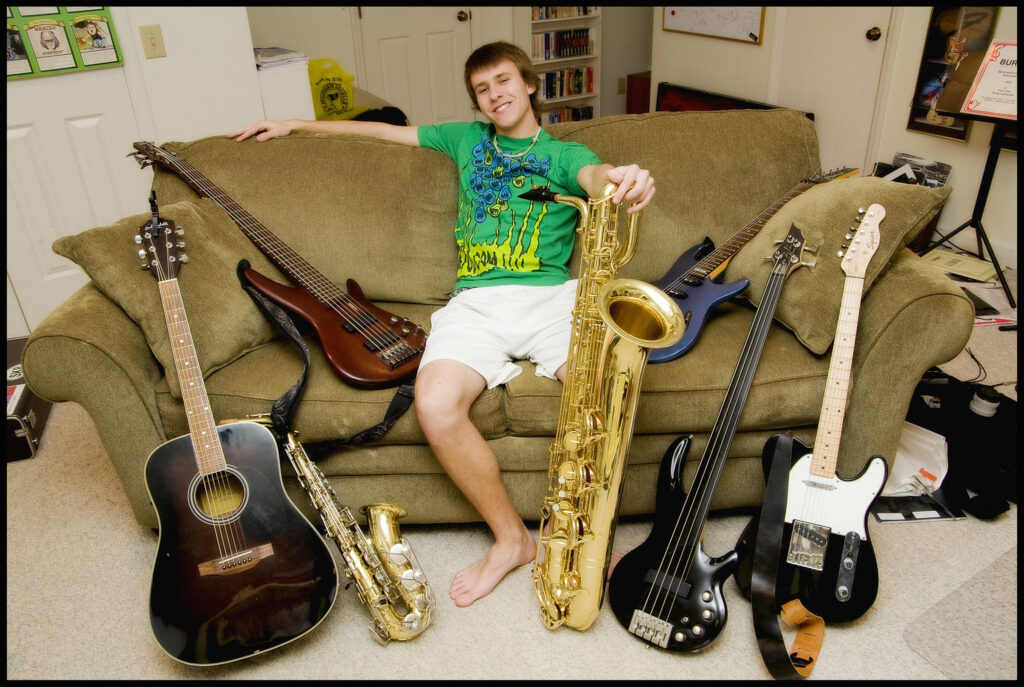Costco, Jayco, Yamaha, words are cheap
Take a left towards the dream of satisfaction, continue straight across the vast landscape of consumer choices, never arrive at your destination

COSTCO
A few days after her birthday, Kathryn’s final draft of her first book was due to her editor, so there was much to celebrate. Plus we had her 12-year-old Henry with us, adding to the festivity. After much indecision with different fanciful ideas, I told him I’d settled on a perfect surprise for his mom (and him)—an exclusive “shopping spree.” But we started out with his present: “pickleball” for the first time, at Lucky Shot Club or something like that, right near our house in Northeast. They’d both curiously remarked on the massive hip warehouse redo each time we’d drive by it on the way to his saxophone lessons out in Brooklyn Center at Schmitt Music on Thursdays. Pickleball was sincerely a blast all around, though a bit expensive, for us, in my opinion.
Anyway, after that, it was shopping spree time. I kept my Google Maps app hidden to make them guess where we were going. Henry right off said Costco, knowing his mom had a mild obsession with it but wouldn’t splurge on the membership. She in turn, to my embarrassment, wagered a happy guess that I was taking her to one of those by-the-pound thrift stores, where clothes and shoes and bags and junk are piled in giant bins for you to sort through yourself and untangle and buy in bulk. The three of us had recently been to the Salvation Army near downtown Minneapolis and I appreciated her deep love of “finds.” I do also tend to view cheapness in itself as a thrill. But I would never do that! What a terribly crappy spree, not to mention stressful, dealing with all that crap. We’re by no means poor, but as independent writers/artists with teaching or arts admin gigs or grants constantly coming and going, we have to stay frugal. Nimble. I often think—however zanily busy things get with this kind of career—that still, I’ve got more time than money, don’t I?
As they threw out guesses, we wound our way out of the city into the endless suburbs with their sprawling lands of Best Buys and Menards and Joann Fabrics, none of which oddly were in the nearby strip malls of our destination. It’s odd how even though it’s all the same out there and you could basically just as well go to Dick’s if there’s no Cabela’s, there are still loyalties to one or the other—there’s a limit to their interchangeability. Like in Minnetonka, Morrie’s is Morrie’s, but Morrie’s Mazda isn’t Morrie’s Subaru or Morrie’s Ford. There’s a difference to people, even though all cars look almost identical nowadays, due to extensive safety and efficiency best practices and whatnot. Kathryn of course drives a Prius (and so does Henry’s dad, in fact—kid knows what’s coming for his first ride.)
On this day though, we had taken my kinda new to me Subaru Baja [discontinued] for the adventuring (don’t go to Morrie’s for servicing this car.) I’d given it as the only hint—that our spree would also benefit me and my Baja. I hadn’t realized when I bought it stupidly that with a turbo engine it required the expensive gas, 91 octane or higher. Where we were going, it would be a good deal cheaper than any other gas station, even the off-brand weird ones. Well I can’t remember if we went local via Glenwood to Xenia or if we just took 100 S or 394, but by the time we passed the DoubleTree there in St. Louis Park they pretty much knew we were going to Costco after all (sorry to spoil the surprise.) But Kathryn and Henry were plenty pleased and jumping out of their seats talking about pepperoni pizza slices and ice cream before diving in with a giant cart to roam the double-wide aisles of super-sized staples and luxuries and absurdities, side by side by side.
I don’t think I can humble myself enough to list the hundreds of dollars of products we bought, after all. I wasn’t even entirely sure they would let us in to the Costco. I didn’t have my card—yet. I was getting on my dad’s account since he’d removed my sister as his second card carrier because she just used her husband’s all the time anyway, through his show-biz chef job. They live in Honolulu and he works on the Magnum PI reboot and she does locations on Doogie Kamealoha, M.D. (Howser reboot, but Hawaiian, can you believe it?). And my mom just uses my dad’s card with him all the time. So now, with just a stop at customer care and a quick snapshot, I could step in to this lush world (we were even Executive Members, apparently.) More importantly, I could provide Kathryn with this little dream slice of life, at no cost.
It was a kind of dream, truly. A type of American dream—to have it all. Some of it. To have more than enough. It’s kind of criminal, all the cheapness, when you think about it. And this whole needing a membership business? But is it so different from Cub Foods or whatever? Forget Lunds & Byerlys and Kowalski’s; costs too much. And not everyone can afford to go to the co-op, either. I have a couple of friends who consider themselves relatively broke but shop at the Wedge, amazes me. It’s no secret how the ethical shopping lifestyle isn’t exactly ethical class-wise.

JAYCO
We immigrated to Stillwater, Oklahoma from Egypt when I was kid so my parents could go to OSU and update their degrees. It was probably the only school that checked all the necessary boxes—accepted them both, gave them funding and subsidized housing, was in an utterly cheap place. My dad went from being an engineer in Alexandria to working at Pizza Hut—which, my sister and I had no problem with that. We loved it; we thought it was gourmet compared to the other places, what with those angled roofs and moody red lighting and salad bars. Our grandmother who moved with us to take care of us had never had pizza in her life. I remember she marveled, and us as a whole family, at the Salvation Army—all that perfectly functional random stuff and clean, barely outdated clothing just discarded like that. And you could still find tons of Cowboys gear, and Adidas, and so many unknown board games and knick-knacks and stereos.
I remember one time walking with my mom in killing Oklahoma summer heat the few miles to the IGA for groceries, and when we got there I’d successfully complained my way into getting a Coke from the machines outside. But somehow after we put the coins in, out came a Dr. Pepper and I had no idea and took a huge dying gulp and nearly threw up from the unexpected—and I still maintain, nasty—taste. She wouldn’t buy me another one. We always left the IGA with a huge block of Velveeta with this beautiful thick neon yellow color I loved and I thought was just what all Americans ate for cheese, but it was just what poor Americans eat for cheese. It’s astonishing how vivid those memories are, that taste, that color.
When it was time for my dad to start job-hunting, he bought a big ol’ gray Dodge Diplomat, and would take long out-of-state trips to anywhere that would give him an interview in his field. One time we went with him all the way to Ohio in a day, in that giant plush sedan, like a little living room on wheels I recall it, in my little size. And I bet we stayed at a Motel 6 there, by I-270. My parents still love a good Motel 6 but they’ve got this hefty Jayco Jay Flight RV trailer now for all their trips—with room for all of us. The thing that drives me crazy though is that, between the size of the trailer and the equally monstrous size of whatever pickup truck it is required to haul it, they can’t really stay anywhere interesting like a national park or state park campground. They can only stay at KOAs, those lifeless grassy parking lots of camping, out in the worst middle of nowheres of the middle of beautiful nowhere. Of course they’re cheaper too, which they love, and need.
I mean, what can you do? We can’t all own a cabin outside Aspen or a condo in Sante Fe (never mind jetting off to Athens (Greece) or Nice (France.)) And we can’t all own pontoons. Some of us have to rent. Over and over, many things. Many of us. Many of us drink Busch beer instead of craft or smoke Camel Lights instead of American Spirits to save some money, while we’re on that random lake vacation—to be on that lake in the first place. Isn’t it better not to be precious about the accoutrements? To know what counts—the sun, the family, the eating and drinking. I realize this is partly why I love me some country music.

YAMAHA
Henry’s been complaining about the used entry-level sax his parents scored for him when he first started showing interest in playing about a year ago. His teacher hasn’t mentioned hearing any issues with it. But that hasn’t stopped me from obsessively shopping around, trying to preempt a desperate costly purchase. Not that he’s bad about that sort of thing—he’s very sensible—he wants a Yamaha, of course, maybe a YAS-280, about $1,500. I think if I keep a search going, I can find a used one or similar quality cheaper one. I took him to a “sax clinic” at Jazz Central Studios and they gave his horn a good long tweaking for free, and sold us a quality mouthpiece for pennies too.
I’ve also got my eye out for less expensive lessons maybe directly through a musician versus the Schmitt Music scheme—I shouldn’t say scheme, just because it’s Schmitt. I mean, even esteemed art institutions have to make money as everyday learning centers. Henry just begrudgingly took a drawing class actually at the Minneapolis College of Art and Design, MCAD. I have to say I was personally, typically, shocked at the amount and cost of supplies required for the short once-a-week class! The fancy pack of charcoal sticks just this weekend went from the bottom of his backpack to the back of the craft cabinet, totally unopened and cracked to hell.
It’s a good thing I’m a writer, me, what with my family/thriftiness background/issues. I wonder if they would have bought me any kind of instrument. I just use one of a dozen pens or pencils laying around, imagine! And I write on anything—despite my efforts at notebooks—receipts, pamphlets, maps, even napkins, yes, though it always turns out terrible (the handwriting and the poem). I’m a poet. The poems in my debut collection HOMES which Coffee House Press finally put out last year were pretty much all initiated and substantially oriented in this on-the-fly way, in a sense out of necessity, over like a decade of stints of immersive travel around the Great Lakes region. Writing is simple and resilient in this way. But words also are cheap, the wrong kind of cheap.
Now, some people just dance, in jeans even, don’t need a thing—that’s pretty good, as far as needs go. But we all need our Macs and Dells, in the end, to make ourselves known, and to know others, of others. It’s just that some also need recording equipment, and keyboards and electric guitars, and paints and canvas-stretching services, and tools, many precious, industry-specific tools. Business cards, for some reason—but you can get those VERY cheap online nowadays, good thing. Everyone seems to like Vistaprint, for one.